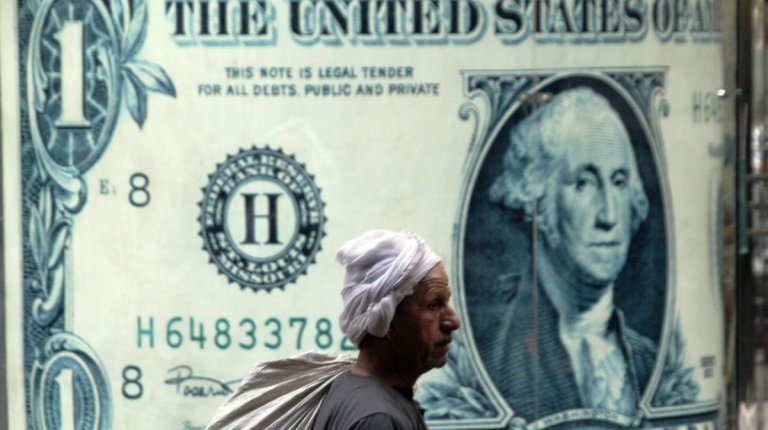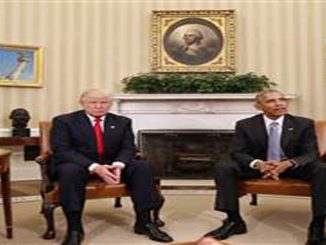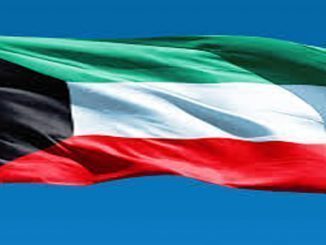
Despite the Egyptian strict regulations and fearful of new jails against the black market dealers, Egypt’s currency traders are driving with bags of cash to meet clients in discreet locations around the vast capital Cairo, according to the Gulf Times.
Reuters cited a trader saying-he was on his way to buy dollars from clients in Cairo- “The company I used to work for is shut down so now I work from the streets. Many people are worried but only the brave like me are still working.”
The Egyptian economy has been facing one of its harshest crises in history. Shortage in foreign currency is one of these problems due to the decline in tourism and foreign investment -the two major foreign currency resources.
Since then, the Egyptian authorities have been blaming exchange bureaus for the crisis and have arrested traders, shut dozens of outlets and revoked the licenses of those found to be trading far beyond the official rate of 8.78 pounds to the dollar, reported the Gulf Times.
The Egyptian government has been fighting the black market for the exchange of dollars in which the divergence from the official central bank rate has widened to more than 40%.
This month the Egyptian parliament set strict measures and penalties against the black market deals, including prison sentences up to 10 years and fines up to 5mn pounds for traders selling foreign currency at black market rates.
In the previous law, there were no prison sentences or fines set for violators.
However,the intensifying crackdown didn’t deter the black market traders “who remain active and resilient behind the scenes.”
One exchange bureau manager in a status of anonymity said,“There is difficulty in making transactions and there are big risks, but with those increased risks come the increase in profit and that is why this market will keep working. One way or another, it will continue in unofficial locations.”
In fact, the price (for dollars) is rising now again because the demand is high while the supply is low.
“The price of dollars now varies from one trader to the next by up to 50 piasters as communication between bureaux has gone quiet in response to intensified surveillance.Four traders this week offered a varied 12-12.5 per dollar range to buy dollars and a range of 12.5-12.7 per dollar to sell,” reported the Gulf Times.
Hany Farahat, economist at CI Capital said, “I don’t believe the crackdown will help reduce the parallel market rates.” He added,“On the contrary, excessive regulation will increase the opportunity cost of engaging in unofficial transactions and push traders to charge a higher fee, and therefore increase the parallel market premium.”
The Center Bank Of Egypt(CBE)devalued the Egyptian currency by 14% in March to close the gap with the black market rate – but increased the dollar shortage in return. Net foreign reserves have shrinked by more than half since 2011 to $15.536bn as of last month – enough for less than three months of imports even as Egypt has kept the pound artificially strong through weekly dollar sales.
The Egyptian authorities crackdown aims to curb the black market dollars and channel them back into bank coffers, but” it has done little to increase dollar holdings,” bankers said. One banker said,“The more they set barriers in the market the more ineffective they turn out to be. Currency traders are still trading but off the premises that are being monitored, selling to their big clients.” He added that Egypt needs to find effective solutions to its dollar liquidity problem.



